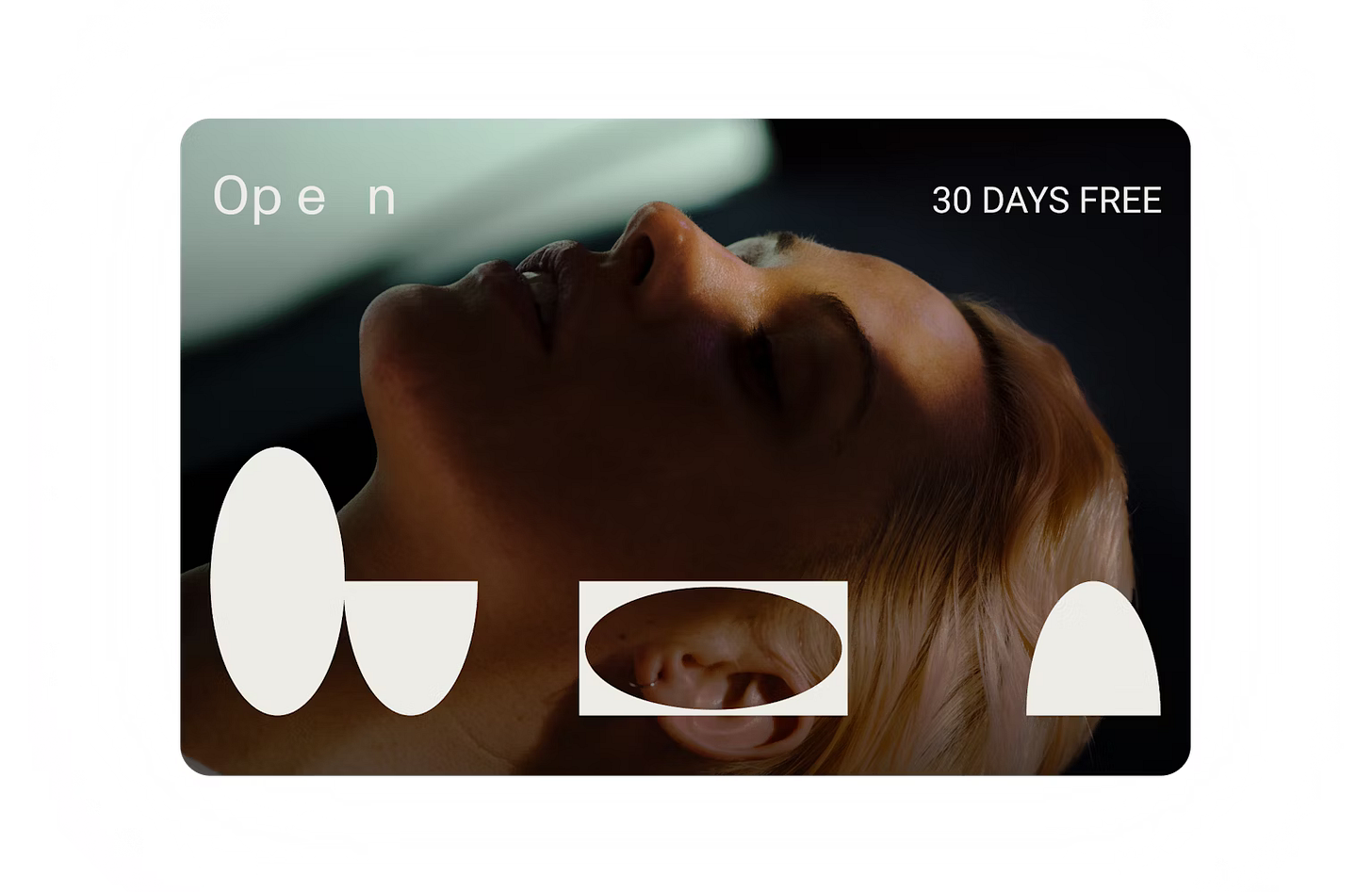Interruptions Are Killing Your Creativity
long live slow creativity and a study on interruptions
Crisp leaves tumble down the main street, the wind carrying the scent of ocean marshes and seaweed. I walk alone to the coffee shop, unhurried, absorbing the world around me. These uninterrupted moments are what I’ve been craving—not just for peace of mind, but for my creativity. Isn’t this a rarity nowadays? We’re constantly bombarded: notifications ping, meetings fragment our day, loved ones need attention. It’s an endless stream of interruptions.
These disruptions have made me think about their cost—particularly on our creativity and focus. I’ve come to treasure moments when I can sit alone, phone off, and give my mind space to breathe. These rare stretches of uninterrupted time stand in stark contrast to the rest of my week, filled with client messages, toggling between platforms, problem-solving, and jumping into meetings mid-idea. It’s made me wonder: what is the true cost of our interrupted lives?
Fortunately, there’s plenty of research on this topic, and one study, in particular, caught my attention. Now, before you tell me that interruptions don’t really affect you or aren’t that bad, here’s what I found fascinating: People who are interrupted often do finish their work in the same amount of time, but it comes "at a price: experiencing more stress, higher frustration, time pressure, and effort."
In other words, “When people are constantly interrupted, they develop a mode of working faster (and writing less) to compensate for the time they know they will lose by being interrupted. Yet working faster with interruptions has its cost: people in the interrupted conditions experienced a higher workload, more stress, higher frustration, more time pressure, and effort. So interrupted work may be done faster, but at a price. Our results suggest that interruptions lead people to change not only work rhythms but also strategies and mental states.”
After just 20 minutes of interrupted work, participants “reported significantly higher stress, frustration, workload, effort, and pressure.”
And to top it off, Gloria Mark, the study lead, told Fast Company that “it takes an average of 23 minutes and 15 seconds to get back to the task” after an interruption.
What I take away from this is simple: you can pretend interruptions don’t impact you, or you can acknowledge that they do and find ways to reduce them. Doing so will lead to less stress, less time anxiety, and ultimately, in my opinion, better work.
So, how do we lead less interrupted lives? I don’t claim to have the perfect answer, but here are some things that have helped me reduce stress, time anxiety, and most importantly, carve out time to be creative:
First, we are not machines. The average person usually gets 3-4 hours of solid work done in a day. Knowing this, it makes sense to build in breaks—to stand up, eat, go for a walk, reset. Forcing yourself to grind through the day without these pauses won’t help; it only exhausts you.
Second, things will always take longer than you think. Our brains are excellent at time blindness. Over the years, I’ve learned to build buffers into projects and tasks. Pretending you can get things done faster doesn’t serve you—it only increases your stress.
Third, you probably don’t need that meeting. Over time, I’ve realized how much time gets wasted in meetings. Often, it’s just people thinking out loud while the person responsible for the deliverable waits to start after the call ends. I know this doesn’t apply to everyone, but consider this: we sometimes default to meetings and discussions as a form of procrastination, fooling ourselves into thinking we’re making progress. I often don’t tell people when I start a project for this reason. As nice as it is for people to check in, I need the space to focus.
Fourth, give meditation a try. It works. Studies show that meditation can improve focus and reduce stress, and personally, I’m just a nicer person when I meditate. I’m not perfect with it—in fact, this October, I’m challenging myself to 30 days of consistent practice to make it a priority.
Finally, if it’s not in your calendar, it won’t happen. I know, it’s not glamorous. No creative wants to rely on a calendar, but think of it as a concept rather than a literal tool. What part of your day or week can you set aside as sacred time for creativity? Is it late Friday night? Early Saturday morning? Maybe every morning before you open your emails, you spend time writing or thinking freely. For me, it’s been an evolving process. Fridays have become my day for deep creative work, divided between writing and operational tasks. It’s not perfect, and I still tend to overestimate what I can accomplish, but it has allowed me to write weekly and maintain a healthy boundary for focused creativity. My next goal is to dedicate one week each quarter to completing an idea. I’m excited to work towards that.
Of course, there are countless digital tools and focus apps that can help, but I won’t go into that—I don’t want this to turn into a productivity article. Instead, I want to focus on what it means to lead an uninterrupted creative life.
It's about having the space to think through an idea without the immediate pressure to act—the luxury of a slow process. I call it a luxury because society has conditioned us to believe that quick action is the norm. Look at Threads or X, or social media in general. Platforms and their gurus urge you to post constantly. Got a question? Google it instantly. You're an artist? Don't just show the final piece—livestream your entire creative process. Why bother reading a whole book when you can skim a summary of its key points? And why focus on one task when you could juggle several?
I’m not saying these tools don’t have their place—many are useful. But they raise an important question: Do they help or hinder our creativity and mental state? When we choose to slow down, to take our time, we’re pushing back against these pressures. It’s not about waiting for perfection before you share—that’s just another form of procrastination. But you should be allowed to fully complete a thought. And if you want to revisit, revise, and improve, you should. After all, the first iteration of an idea is rarely your best.
When we choose to slow down, interruptions often creep in. It might be the urge to open an app or an unexpected phone call. While I can't offer a perfect solution, I urge you to consider the true cost of these interruptions to your creativity. It's likely far higher than you realize.
Personal Work
Meditation App
If you're interested in meditation, I personally use and really love Open. They offer a wide range of classes in various styles, lengths, and not just meditation but also yoga and pilates. I like that I can access it on both desktop and mobile, making it easy to fit into my day. Some breathing exercises are as short as 3 minutes, which makes it accessible even when time is tight. I also appreciate how they track your class streaks, helping with accountability. My longest streak so far has been 7 days, so aiming for 30 days straight will definitely be a challenge, but one I’m excited about.
As a yoga teacher with two additional certifications in meditation, I had developed a strong practice that I, unfortunately, let fall by the wayside. For me, this feels like returning to an old friend and a cherished habit.
As a member of Open, I have a referral link that gives you one free month on the platform. If you're interested and up for a meditation challenge, feel free to join me!
Check out Open with free 30-day referral link
Hey, you made it to the end! I have a little secret for you. My grandpa butt-dialed me this week. And it made me realize how lucky we are to have the ability to do that. My grandpa is my last living grandparent, and communication can be challenging. At 90 years old, like many of his generation, he treats phone calls as if they still cost an arm and a leg. He's also not the most tech-savvy, as the butt-dial implies.
But strangely that day, I woke up and he popped into my head. I thought, "Oh, I should text him," and only moments later the butt-dial came through. I immediately answered, loudly saying "hello" in Polish, only to hear him shuffling around in the background. It may not have been a moment of connection. But in a strange way, it was. I texted him to let him know I was thinking of him, and as per 90-year-old behaviour, it will likely be my dad reporting back that he appreciated it. Because texting is simply to complicated.
So, the moral of the story? My woo-woo self thought even a butt-dial can be a sign from the universe. Reach out to your loved one.







